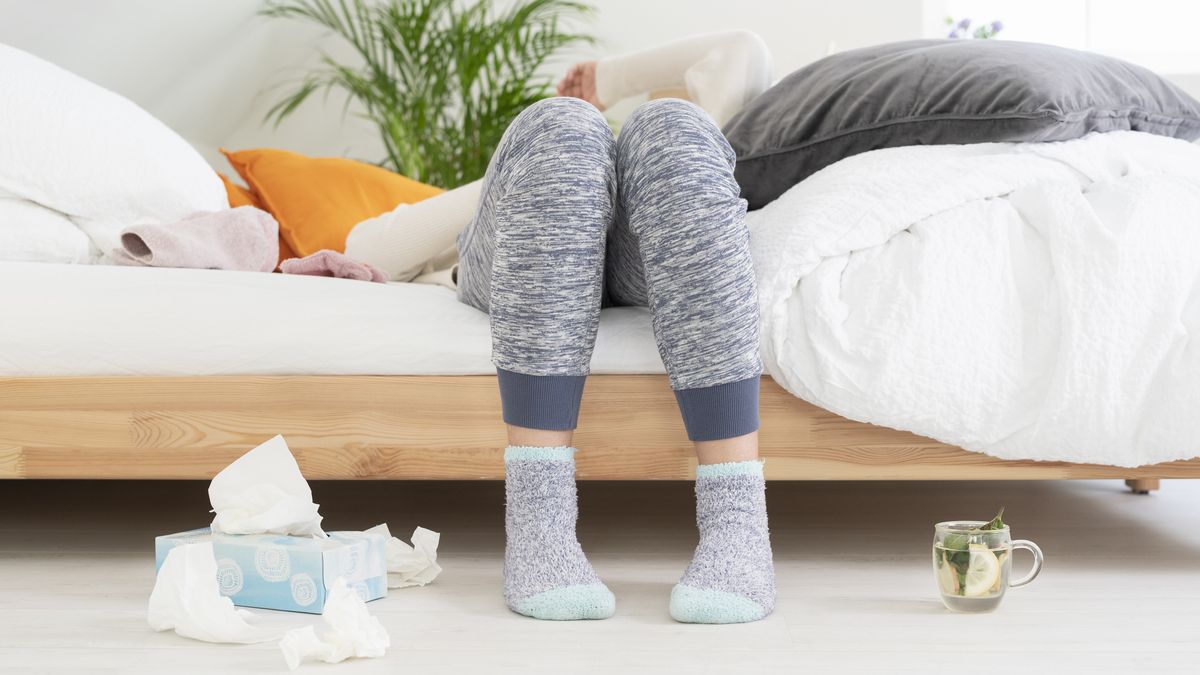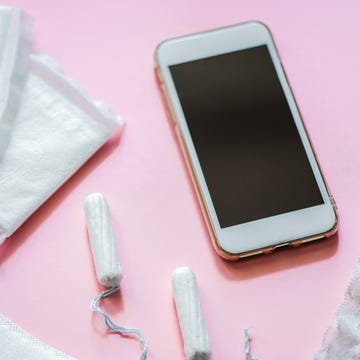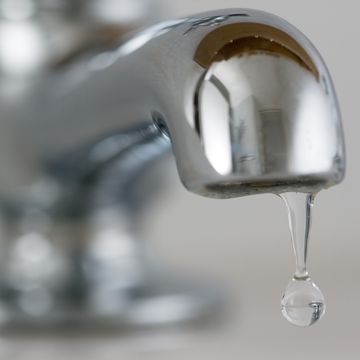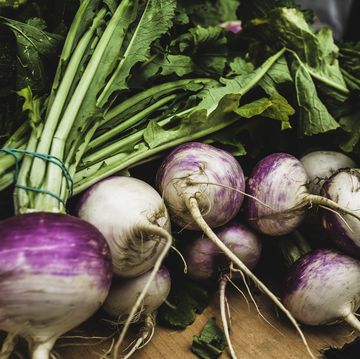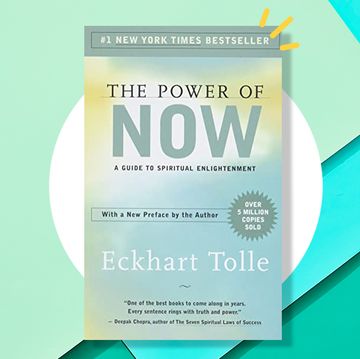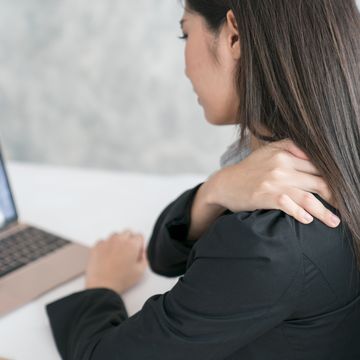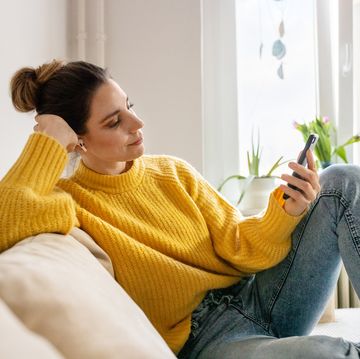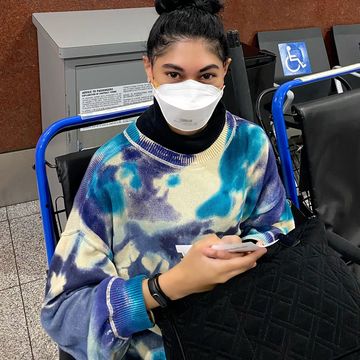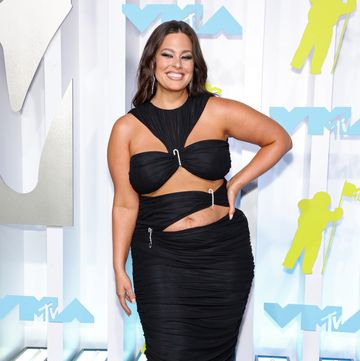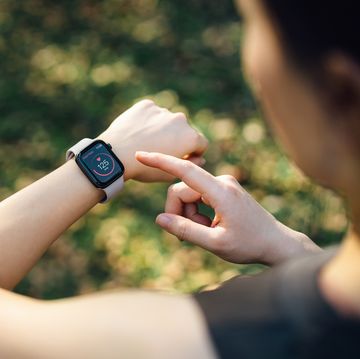Now that COVID-19 has been around for more than two years, and with one variant being more contagious than the last, chances are you or someone you know has come down with it. Some may get away with just a runny nose and sore throat, while others may have trouble breathing. Regardless, it’s not a pleasant experience, and one you probably don’t want to repeat. So, it’s totally reasonable for you to wonder, can you get COVID twice?
The answer is yes. People who have had COVID in the past have some protection against reinfections. That being said, “Immunity to SARS-CoV-2 is not perfect, so it doesn’t completely prevent you from getting infected again,” says Kawsar Rasmy Talaat, MD, an infectious disease expert at Johns Hopkins Medicine. “And as time goes on, your immunity does wane, so you’re more vulnerable to reinfection.”
With each mutation of the virus, the immunity from a previous infection doesn’t perfectly protect you against new variants, adds Dr. Talaat. So if you had the delta variant before, you’re more likely to be reinfected with omicron than a second case of delta.
The good news is that vaccinated individuals who have a second infection with omicron and beyond tend to have a much milder case of COVID. “We’re seeing much more of your garden-variety common cold,” says Natascha Tuznik, DO, an associate clinical professor and the associate program director of infectious diseases at UC Davis Health.
But it can be hard to tell whether you’re still sick from your initial infection or a new one popped up because some people, especially those with a compromised immune system, can still test positive up to three months after they’ve contracted the virus, some research has shown. “There’s not really anything we can use to distinguish that other than clinical symptoms,” says Dr. Tuznik—such as fever, chills, coughs, and lung findings on imaging.
Here's everything you need to know about how early you can get another infection, what to do if you do end up with one, and how to protect yourself from contracting it again.
How soon can you get COVID again?
Generally speaking, the risk of catching it another time is very low within the first two or three months after your illness, according to Dr. Talaat. However, Dr. Tuznik points out that there is no exact timeframe that applies to every person because of the varying levels of immunity, be it from a prior infection or vaccination.
For example, the immune response of an immunocompromised individual (think: people who have cancer and the elderly) who receives the COVID vaccine declines much more quickly, which means they are more susceptible to a repeat infection in a shorter period of time. “We’ve seen people become reinfected within a month, and we’ve also seen patients six months out get reinfected. So there’s no hard answer to that,” says Dr. Tuznik.
The same goes for those who develop immunity from getting COVID. “Adults, especially people with more serious disease, are more likely to have better immune responses after being infected, whereas people with milder symptoms may not have a very good immune response,” notes Dr. Talaat. “So the best way to protect yourself against infection is to get vaccinated because that gives a more consistent, strong immune response."
Dr. Tuznik agrees, adding that "the antibody response the body makes from natural COVID infection is not as good and not as robust as the antibody response that you get from vaccination, and particularly from boosting."
Who's at risk of becoming reinfected with COVID?
Those who are unvaccinated are at high risk of getting COVID twice. "Not only are [vaccinated individuals] protected from getting disease, but specifically they’re protected from severe disease, meaning hospitalization and risk of death," says Dr. Tuznik. "And this has been shown repeatedly in the data that has been produced or put out into the medical literature since the advent of the vaccine."
Another group that's vulnerable to reinfection is people who have a suppressed immune system either due to an underlying disease or treatment, such as chemotherapy or radiation therapy. While their bodies do produce antibodies after vaccination, they are just not as good compared with a normal, healthy individual.
For this reason, Dr. Talaat says anyone who falls in this category should check with their doctor to see how many other doses they need. (FYI, immunocompromised people and those over 50 who received a booster four months before are now cleared for a second mRNA booster shot, according to the CDC.)
There is now also an injection called Evusheld that's developed specifically for people who couldn't get the vaccine because of allergies and those who are immunocompromised. "It’s a long-acting injectable monoclonal antibody that is supposed to confer additional protection to such individuals for up to six months," says Dr. Tuznik. "While it doesn’t work perfectly against all of the variants and may not potentially work for whatever variants to come, it is certainly an adjunct therapy that is now available."
What should you do if you get COVID again?
This depends a lot on how you feel. If you don't have any symptoms and can function normally, Dr. Tuznik says you should go through the isolation period, make sure you take care of the loved ones around you, and avoid exposing anyone at high risk. After testing positive, you should isolate at home for at least five days, and you can end isolation if you're fever-free for 24 hours, per the latest CDC guidelines.
If you're feeling really bad, particularly if you have shortness of breath, you should consult with your doc about next steps. There are several treatment options that are only effective if they're started soon after you contract the novel coronavirus. So, the sooner you reach out to your primary care provider, the better.
What can you do to protect yourself from reinfection?
First and foremost, schedule an appointment for the vaccines and booster ASAP if you haven't done so already. And sign up for the additional booster if you're eligible.
Then, especially if you have immune system issues or live with someone at increased risk, like an immunocompromised individual or a child who can't be vaccinated, keep practicing the same precautionary measures. "Wear a mask when you’re out in public, especially when you’re in an enclosed space that may not have as good of a circulation, and try to continue to socially distance yourself if you’re able to and then avoid any unnecessary risks," advises Dr. Tuznik.
Jackie Lam is the senior health editor at Women’s Health where she oversees health and weight loss content for the website and the Mind section of the print magazine. Originally from Hong Kong, she’s a journalist with more than 10 years of experience and a proud graduate of Cornell University and the Medill School of Journalism at Northwestern University. When she’s not at her laptop, she can be found experimenting with Japanese recipes in her kitchen with her husband as her main taste tester, discovering the latest in K-Pop, and dreaming up her next trips to Japan.
